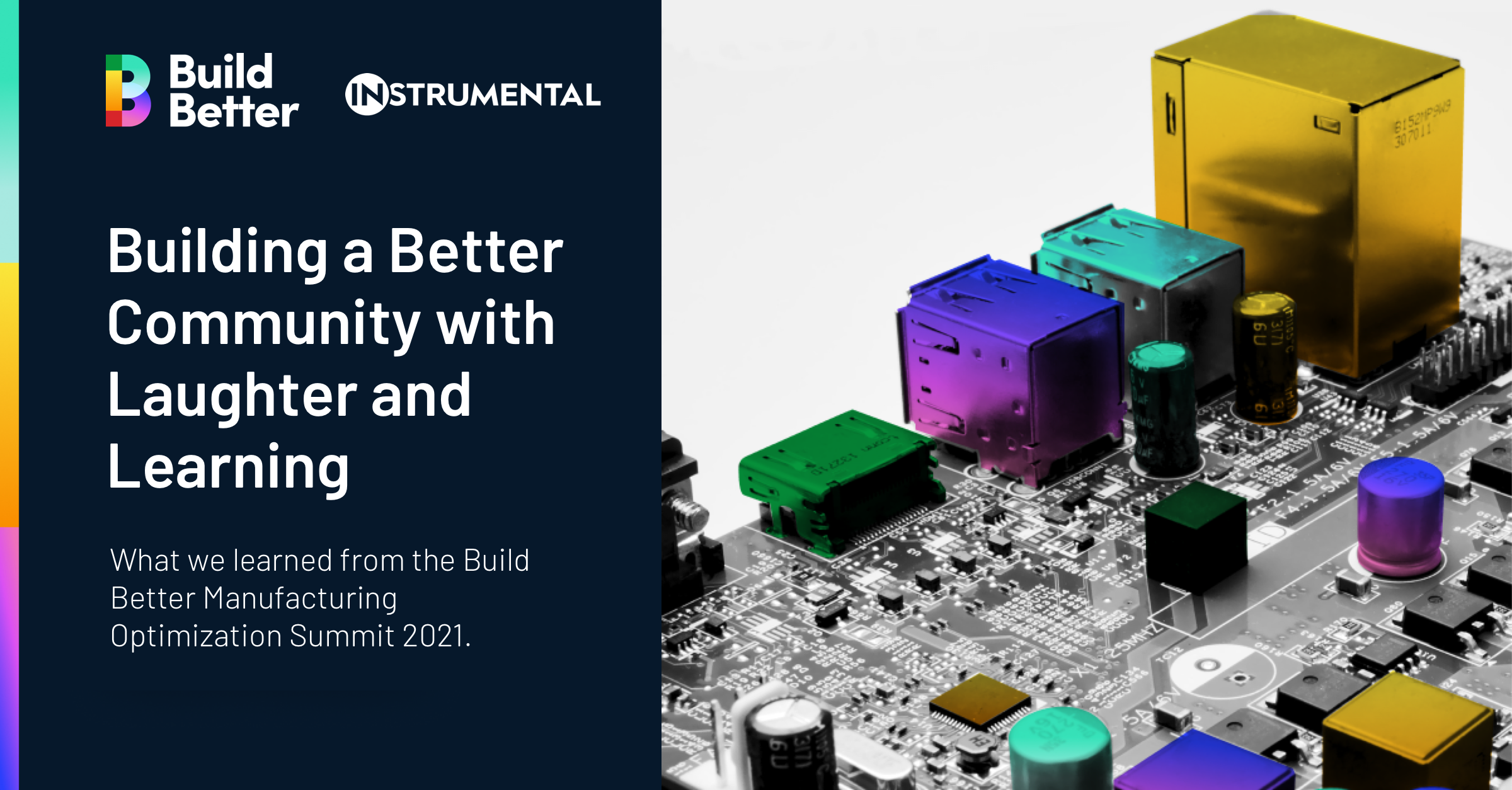The second annual Build Better Manufacturing Optimization Summit has concluded – and we couldn’t be more honored to have shared an afternoon of learning and connection with our community (even if it was through a screen this year).
In less than a year, the summit tripled in size to 350+ leaders from across manufacturing, supply chain, and engineering disciplines, including folks from established brands and startups implementing some cutting-edge new technologies.
As we look back on the event and the conversations attendees were having, we wanted to share some key highlights from the day.
Highlights from Build Better 2021
Manufacturing optimization doesn’t end at failure analysis
In her keynote address, Anna-Katrina Shedletsky, CEO of Instrumental, redefined manufacturing optimization as a distinct category for leaders to focus on in 2021 – pushing brands to take ownership of persistent and generational improvements for the entire industry. By driving optimizations beyond the unit-level (FA) to the generational-level, organizations can bring more exciting innovations to market faster and with less waste – opening the door for an electronics comeback in 2021.
The good, the bad, and the ugly units at Oculus
Caitlin Kalinowski, Director of Hardware for Oculus, shared how Facebook’s commitment to the 4 C’s (culture, commitment, connection, and communication) helped her team hit their ship dates even during a global pandemic. She also shared this protip with other hardware leaders: build ugly prototypes. It ensures no one falls in love with a design before it’s too soon to commit and frees your team up to focus on functionality first.
Finding billions of dollars in the manufacturing couch cushions
Jeff Lutz, former SVP at Motorola, shared how realigning goals between brands and CMs could result in billions of dollars saved across the supply chain. By including optimization incentives within a new deal structure, CMs are more likely to reorient themselves around deep structural improvements versus short term gains.
Repairing the relationship between brands, consumers, and the environment
Kyle Weins, CEO of iFixit, gave a speech on reparability in electronics and joined other mechanical engineers from Instrumental and Amazon for a live teardown theater. If you’ve ever wanted to be a fly on the wall for deeptrack convos between seasoned product design experts – check back to the Instrumental Resources page for the recordings.
One size does not fit all markets
Cathy Ma, Head of Audience Development for Thomasnet, gave an in-depth presentation which confirmed that reshoring isn’t happening all at once. Reshoring depends on markets and individual company priorities, and is a much more nuanced trend than the industry realizes.
Intelligence gathering about artificial intelligence
Simon Kozlov, AI Lead for Instrumental, provided manufacturing leaders with a basic framework for assessing AI solutions and their potential impact on product development. Connect with us at communications@instrumental.com for more information on the right questions to ask an AI provider.
The funny side of manufacturing
Arch Systems sponsored a post-event improv shot in which participants supplied industry jargon to facilitate some fun, spontaneous games. Ranging from the worst assembly line puns to AI impersonations, our comedians and attendees manufactured more than a few laughs.
_____
Events were once the primary source of knowledge sharing for the manufacturing industry. While the global pandemic has made it harder to travel to factories, it does not have to make it harder to share knowledge between each other. The above were only a handful of the many amazing highlights throughout the day and we hope that you’ll join us for future events to continue building a community based on shared knowledge and connection.
Related Topics



